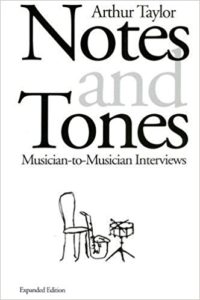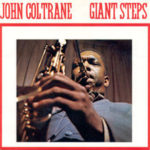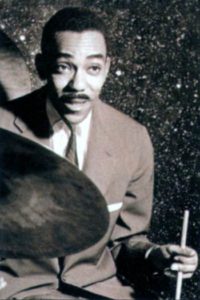 Even now, after having studied and played jazz music for more than three decades, there’s still plenty I will admit to not knowing about the art form, and the context in which much of it was created. I was drawn to this music in the late 1980’s, as a Canadian teenager who loved what he heard, but who was somewhat oblivious to the ongoing racial strife in America. Sure, I read plenty of biographies and took jazz history courses, but these pale in comparison to the insight passed on in Art Taylor’s book of musician-to-musician interviews, “Notes and Tones.” I read this book for the first time only recently, but wish it was recommended to me earlier. I will certainly recommend it to aspiring, young musicians from this day forward. The interviews were conducted between 1968 and 1972, with some of the most illustrious musicians in the music’s history:
Even now, after having studied and played jazz music for more than three decades, there’s still plenty I will admit to not knowing about the art form, and the context in which much of it was created. I was drawn to this music in the late 1980’s, as a Canadian teenager who loved what he heard, but who was somewhat oblivious to the ongoing racial strife in America. Sure, I read plenty of biographies and took jazz history courses, but these pale in comparison to the insight passed on in Art Taylor’s book of musician-to-musician interviews, “Notes and Tones.” I read this book for the first time only recently, but wish it was recommended to me earlier. I will certainly recommend it to aspiring, young musicians from this day forward. The interviews were conducted between 1968 and 1972, with some of the most illustrious musicians in the music’s history:
Miles Davis, Randy Weston, Ornette Coleman, Philly Joe Jones, Don Byas, Ron Carter, Johnny Griffin, Charles Tolliver, Eddie Lockjaw Davis, Erroll Garner, Leon Thomas, Max Roach, Dizzy Gillespie, Carmen McRae, Nina Simone, Tony Williams, Sonny Rollins, Don Cherry, Hampton Hawes, Kenny Clarke, Freddie Hubbard, Richard Davis, Elvin Jones, Kenny Dorham, Art Blakey, Hazel Scott, Betty Carter.
 If the interviewer’s name isn’t ringing a bell, Art Taylor was the drummer on John Coltrane’s famous Giant Steps album, among many other classic jazz recordings. Because Taylor is an insider, as one might assume, the musicians responded differently (more openly and honestly) than if they were interviewed by a typical journalist. The tone of the responses is in stark contrast to what is expressed in most published interviews.
If the interviewer’s name isn’t ringing a bell, Art Taylor was the drummer on John Coltrane’s famous Giant Steps album, among many other classic jazz recordings. Because Taylor is an insider, as one might assume, the musicians responded differently (more openly and honestly) than if they were interviewed by a typical journalist. The tone of the responses is in stark contrast to what is expressed in most published interviews.
The questions Taylor poses are wide-ranging but many are recurring and could be organized into the categories listed below.
Race, social issues and politics:
- What do you think about the strife going on in America with our people?
- Do you think the black man will will ever have the same rights as the white man in America?
- Would you say that our form of music stems from black experience in a racist society?
- What do you feel about integration?
- Do you have any peeves around the word jazz?
- How did you like the Panthers?
- How do you feel about the Black Power movement?
- Do you think militancy among blacks has affected our music?
- Do you think our music stems from Africa?
- What do you think about the mixing of the races?
- What do you think about musicians putting political aspects to their music?
- Do you think musicians should use their music for political ends?
Music:
- To what would you attribute your development as a musician?
- How did you develop your style?
- Would you tell me what you think about Charlie Parker and Bud Powell’s music?
- How did you become interested in music?
- How do you like the Beatles’ music?
- How do you like the way musicians are integrating rock music into our music?
- How do you feel about the avant-garde or freedom music (a.k.a. Free Jazz)?
- What do you think about electronics in music?
the Music Business:
- Has the publicity you have received affected you in any way?
- Have you ever gotten any bad criticism/writeups?
- Do you think the popularity of our music has diminished in recent years?
- Do you think clubs have outlived their usefulness?
Personal Insights:
- Are you religious?
- What do you do in your leisure time when you’re not playing?
- Do you do any kind of physical exercise?
- Do you play for yourself, for the musicians or for the audience?
- Do you listen to music when you are home alone?
- What do you think about the vast publicity surrounding the use of drugs by musicians?
- What do you think about drug addiction and alcoholism among musicians?
- Do you like to travel and play in different countries?
As you can imagine, the musicians had plenty to say on these topics. I won’t spoil the book for anyone by revealing their responses. I found every interview to be profoundly insightful, providing some social and political context behind the albums and artists I love. This valuable resource helped to fill in some of the gaps in my understanding. Do yourself a favor, visit your local library, and delve into a copy of this book.

